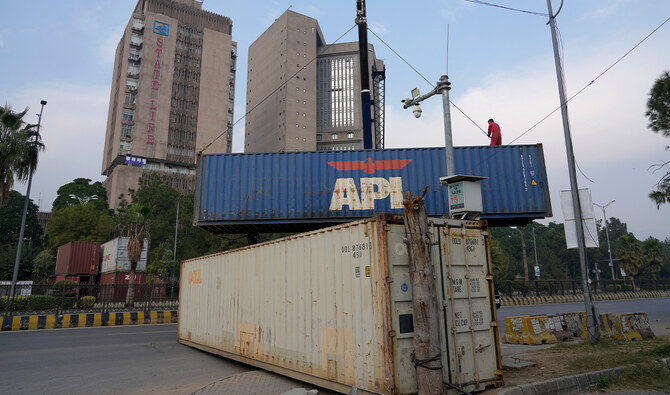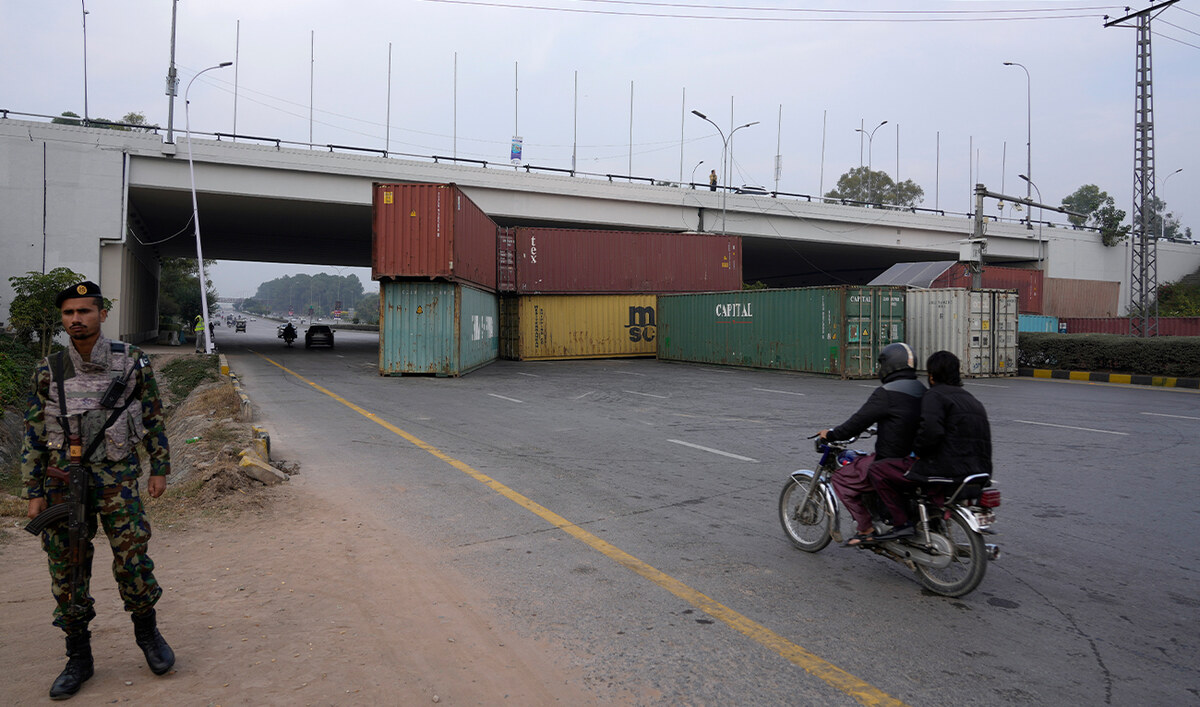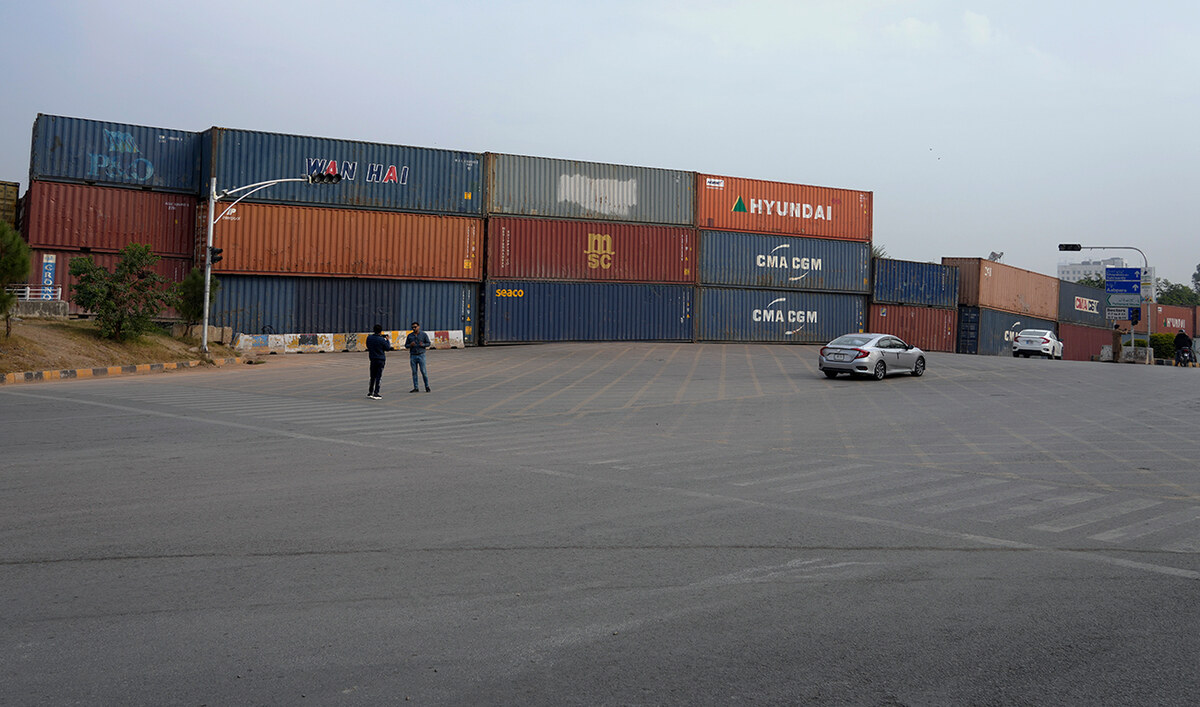DUKKI: Muhammad Abdullah, a coal miner in the southwestern Pakistani province of Balochistan, still mourns the loss of his colleagues who were killed in a deadly attack in the Dukki district this month.
The 28-year-old resident of Dukki, who has been working as a miner for the last eight years, worries about his livelihood as mining in the mountainous district with vast coal reserves has come to a complete standstill since the attack.
At least 21 miners were killed and seven others injured on Oct. 11 when unidentified gunmen attacked a coalfield, operated by Jiyand Coal Mining Company, with sophisticated weapons and hand grenades, forcing those left behind to flee the district.
“The laborers are in fear after the attack and the majority have quit this job and migrated to their native villages,” Abdullah told Arab News.
“Since the horrific attack, all coalfields [in Dukki] have stopped mining, causing economic woes for local mine workers.”

Abdul Ghaffar (first left), a resident of Afghanistan’s Kandahar province, is sitting with his fellow mineworkers in one of the coalfields of Dukki, located in Pakistan's southwestern Balochistan province, on October 19, 2024. (AN photo)
Abdullah said he would be unable to meet his family’s expenses or pay his children’s school fees if mining remained suspended in Dukki.
Balochistan, which borders Iran and Afghanistan, has been embroiled in a low-level insurgency for over two decades. The province, rich in natural resources like copper, gold, natural gas and coal, has attracted economic interest from various international entities. Despite its wealth of resources, safety and security for workers remain a major concern.
The southwestern province has more than 5,000 active mines in Dukki, Harnai, Kachi, Ziarat and Quetta districts. Dukki, a remote mountainous district located some 225 kilometers from the provincial capital Quetta, has more than 1,500 coal mines, where mine owners say 20,000 laborers work day and night to produce 1.8 million tons of coal annually, but the Oct. 11 attack halted the supply of coal to parts of Balochistan and other provinces.
No group claimed responsibility for the attack and the Baloch Liberation Army (BLA), the most prominent of separatist groups often associated with similar attacks in the region, denied involvement in it.
Khairullah Jan, a 52-year-old coal mine owner in Dukki, said the daily coal production in the district had reduced from 4,950 tons to 1,320 tons. Initially, 150 coal trucks daily used to supply coal from Dukki to other parts of the country but for the last 10 days, only 40 trucks have been supplying the product per day.
According to the All Pakistan Mine and Mineral Association (APMMA), a single coal truck carries around 33 tons of coal and each truck with “good” quality coal costs around 1.2 million rupees ($4330.82).
“Majority of the coalfields in Dukki are empty as laborers from Afghanistan and other districts of Pakistan have left the area after the Oct. 11 attack,” he told Arab News.
“This will impact the brick kiln industry because we haven’t supplied coal for the small industries in Punjab and other provinces over the last ten days. We have been facing attacks on trucks carrying coal and threat letters for extortion for the last seven months but the recent attack forced the laborers to think of their safety [first].”
Fateh Muhammad Nasir, another coal mine owner who has been part of the coal business for the last 25 years, said the coal mining industry in Dukki was facing an estimated daily loss of more than Rs130 million ($469,673) due to the suspension of mining activity.
Arab News reached out to Provincial Mining Minister Mr. Shoib Nosherwani and other officials to confirm the figure but they did not respond till this report was filed.
“The laborers are adamant that they won’t resume work until they get security assurance from the chief minister,” he said. “The Balochistan chief minister should visit Dukki and give confidence to the miners.”
Shahid Rind, a spokesperson for the provincial government, said the authorities were making all efforts to allay the concerns of coal miners in the region.
“The coal miners are on a volunteer strike since the attack in Dukki on Oct. 11, but the government will ensure security for the miners across Balochistan,” Rind told Arab News.
“The government is in touch with the miners and owners through district administration and local notables, soon the issue will be addressed.”
As fear drives miners away and economic losses mount, the future of coal mining in Dukki remains uncertain. The situation underscores the need for immediate and robust security measures to protect workers and sustain the vital industry.
Abdul Ghaffar, a resident of Afghanistan’s Kandahar province who works as a watchman at one of the coalfields in Dukki, said mining could only resume in the district if the government provided security to the miners.
“The government must provide protection and security to the coalfields and laborers after which we would resume our work happily,” he said.


















